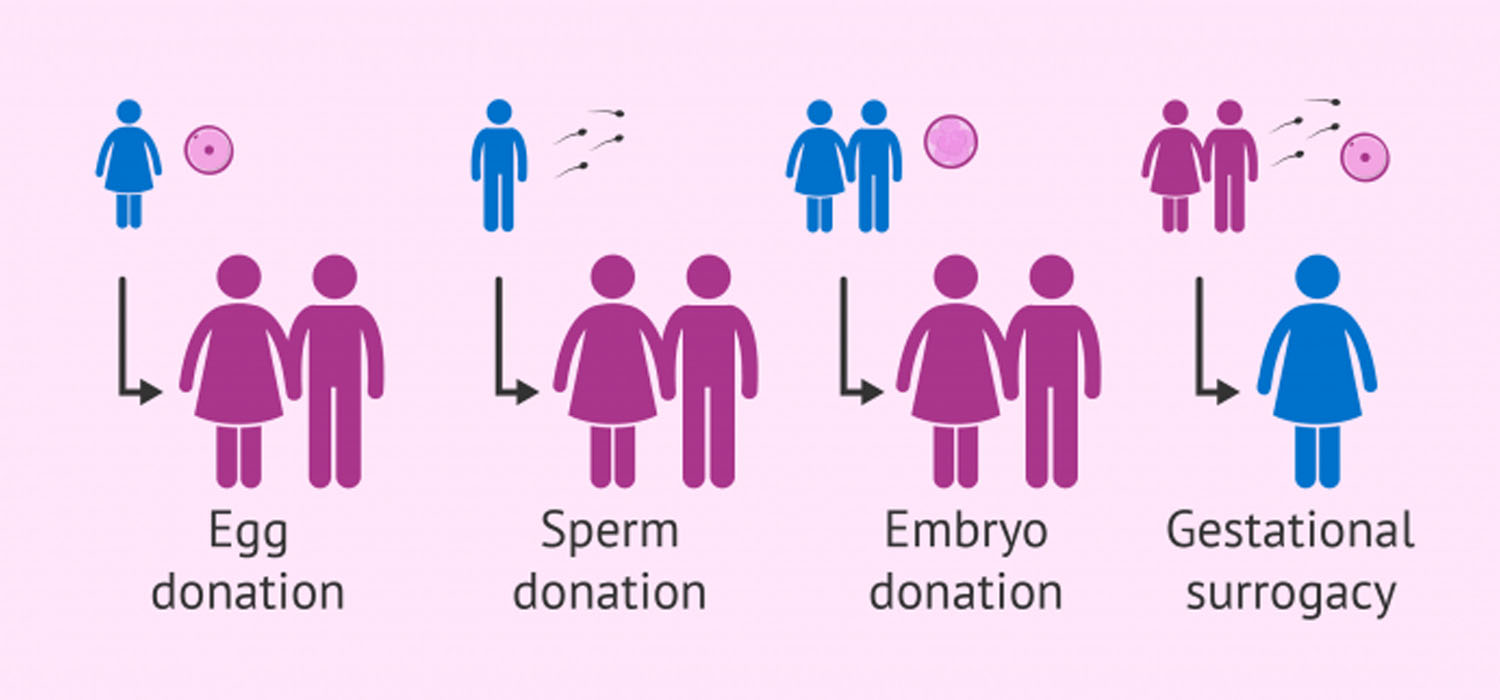Third party reproduction-Egg/Embryo donation
Third party reproduction implies the use of eggs, sperms or embryos that have been donated by a third person (donor) to enable an infertile couple (recipient) to become parents.
This blog deals with oocyte (egg) and embryo donation.
What is the law regulating third party reproduction?
The Indian scenario is governed by the Assisted Reproductive Technology Act (ART act) which came into force from 25th January 2022. The regulatory authorities are the National and State ART and Surrogacy boards, aided by their Appropriate Authorities to implement, monitor, and regulate the provisions of the ART act. All ART clinics and Banks of India must report their services, cases, procedures, and outcomes on a regular basis to a National Registry.
What are the indications for egg donation?
Some indications for seeking egg donation include when the woman has inheritable genetic disorders, is a poor responder to previous ovarian stimulation, is older, has had multiple failed IVF cycles with self-eggs, has undergone radio or chemotherapy and has recurrent unexplained pregnancy loss or implantation failure.
What is the process of egg donation?
It involves evaluating the recipient to confirm the indication. The donor is selected and thoroughly evaluated by physical examination and necessary investigations. The donor and recipients are counselled individually by a professional counsellor. The donor is then subjected to ovarian stimulation protocol to obtain the eggs. Simultaneously the recipient’s endometrium is synchronized and appropriately ‘prepared’ with medications to receive a fresh embryo transfer. Alternatively, if a frozen embryo transfer is planned, the oocytes retrieved from the donor are fertilized and the resultant embryos are frozen.
Who can donate eggs?
Any woman between 25 and 35 years, who has been ever married with at least one live child of minimum 3 years of age is eligible for egg donation. According to the current law no woman can donate eggs more than once in her lifetime and the bank cannot supply the eggs of one woman to more than one recipient. Egg donation by a known or related person to the commissioning couple is not permitted. The donor should relinquish all parental rights on the child/ children that may be born from her eggs. The commissioning couple must provide insurance cover for the donor. Monetary compensation for egg donors is permitted in India.
What does pre-procedure evaluation entail?
The recipient woman, the donor woman, and the partner of the recipient (whose sperms are used for ART) must undergo a thorough evaluation that include examination and relevant investigations. It is imperative to ensure that they are free of infections and that the donor, as far as possible (by detailed history taking and relevant screening) has no known inheritable diseases.
Counselling the recipient couple and the donor forms an important part of pre-procedure evaluation.
The recipient couple must understand the entire procedure in terms of cost, success rate and process. They must understand that the donor is anonymous, limitations of genetic evaluation of the donor and the need for her medical insurance. The recipient, however, can have access to the physical characteristics, educational background, ethnicity, and relevant medical history.
The donor must also be counselled about the procedure, the risks of stimulation and oocyte retrieval including hyperstimulation and anesthesia related risks. Consent of the spouse of the oocyte donor is also necessary. The donor should understand that she has no rights over the child/ children that may be born from her eggs.
Counselling is by a professional counsellor and all the relevant forms must be signed to complete the legalities.
What are the medications for the donor and the recipient?
The donor receives medication for ovarian stimulation. The protocol is planned according to her initial evaluation. She can be stimulated with the antag protocol or the PPOS (Progesterone primed Ovarian stimulation) or random start protocol.
Preparing the endometrium of the recipient, especially to synchronize with the donor cycle in planned fresh embryo transfers, is challenging. Endometrium is appropriately primed with estrogen and progesterone. Frozen or fresh embryo transfer, Day 3, or Day 5 (Blastocyst) transfers can be planned and performed.
What are the factors predicting good response in donor-recipient cycles?
Age of the donor is the main factor predicting the response with best results when the donor is aged between 30-34 years. Number of MII oocytes obtained is another factor that determines the success. There are no major recipient factors that can impact outcomes, though best results are when the woman is below 40 years. Blastocyst transfers are reported to be better than Day 3 transfers as it also avoids multiple pregnancies.
What are the maternal and fetal outcomes of oocyte/ embryo donated cycles?
There may be an increased incidence of gestational diabetes and hypertension, placental abnormalities, or threatened miscarriage. Prematurity, small for gestational age, Low birth weight and growth restriction can occur in these off springs.
In conclusion,
Third party reproduction is an important armamentarium in the management of infertile couples who wish to parent children. Meticulous evaluation of donors and recipients and strict adherence to the legal procedures ensures the smooth running of this program.
For more info, Visit : www.medlineacademics.com
